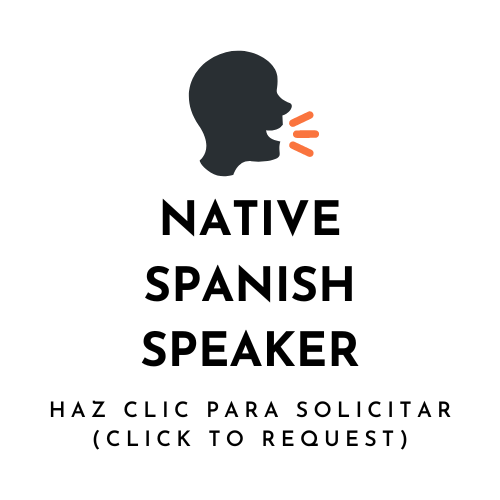By Raquel Issenberg
In today's fast-paced and often disengaged world, “intention, connection, and empathy” have never been more vital, and to Emily Bowser, these notions can hold the essence of sharing yoga, the art of language, and non-harmful speech.
Bowser, this month’s local voice, is a remarkable yoga teacher and passionate advocate of Non-Violent Communication (NVC), who not only guides students through physical postures but also fosters understanding using storytelling as a creative tool.
Emily and her son, Ferris.
With a deep awareness of the profound interplay between mind, body, and spirit, she recognizes the potential for yoga to cultivate non-violence in the words we choose to say, both within ourselves and in our relationships with others.
“I enjoy sharing a brief story at the beginning of a yoga class because it’s an age-old tradition of how we create community and a shared experience with one another. Narrative and storytelling is the main driver of empathy. When we’re able to share a personal story with universal threads of the human experience we lay the foundation for a deep well of empathy.”, expressed Bowser, who holds a Bachelor of Arts in English.
Amidst the chaos and noise of everyday life, there are those who strive to create a harmonious balance in order to transcend the barriers of misunderstanding and conflict.
Recognizing the profound impact that stories have on shaping our comprehension of the world, Bowser incorporates literary excerpts into her yoga classes, utilizing them as mirrors to reflect the complexities of human emotions and relationships.
“I do love to take a moment to read bits and pieces of literature to folks in class! This is curious to ponder because years ago during a yoga teacher training I was a student in, the lead teacher said we should never read from a book –or– never read something we didn’t write ourselves to the class.
But when I’m at home reading and I come across a quote/passage/short phrase that re-frames how I think about a concept and it quite literally generates visceral feelings resulting in goose bumps – one most definitely feels compelled to share those words with others.”, she explained.
Thus, Bowser invites her students to explore the deeper layers of their being through movement, breath, and self-reflection. But cultivating this inner awareness started in her childhood through the joy of words and meaningful stories: “When I was little my mom always read to me at bedtime, so feelings of comfort, closeness, and settling into a story is an integral part of who I am and how to understand the world. The local library was a place we’d frequent. To this day, I still love the environment libraries foster for each and every person; which is a place where you’re trusted, you’re free to learn anything you’re willing to give your attention to, and the ability to walk into a place where it’s inherently calm yet full of possibility is truly a refuge.”.
By engaging with the rich tapestry of characters and narratives, Bowser has explored different perspectives and developed a deeper appreciation for the intricacies of human communication.
“In high school, I took as many language and literature classes as I was able to schedule. At that time, I enjoyed the overlap and interplay of languages so much that when I was a senior I begged my school advisor to let me take a Spanish 1 class that was typically filled with freshmen. Those younger students definitely made the class interesting! Later, in college, I got my degrees in English Literature and Fine Arts (Sculpture). I had one superbly incredible art teacher ask us the same question with every project: ‘What are you trying to say?’. That phrase has stuck with me ever since.”, she remembered.
Emily with her son, Ferris.
Drawing inspiration from the teachings of Marshall Rosenberg, the founder of Non-Violent Communication (NVC), and yogini and author Judith Lasater, Bowser seamlessly weaves the principles of NVC into her yoga workshops. By integrating this powerful tool of compassionate communication with the ancient wisdom of yoga, she offers her students a unique experience.
“I absolutely adore the practice of NVC. I was first introduced to it through one of my favorite yoga teachers, Judith Lasater. Judith’s been teaching yoga for over fifty years. I remember the first time I read her book What We Say Matters: Practicing Nonviolent Communication; it was the place where my love of yoga and use of words finally found a place to synthesize in a way that truly resonated with me. Judith studied with Marshall Rosenberg who developed NVC in the 1970s. Her book looks at NVC through a yogic framework within our practice both on and off the mat.”, Bowser emphasized.
When asked how she uses yoga to help others embody NVC into active practice, Bowser generously offered specifics.
“If I had to choose my top three aspects of NVC, they would be:
NVC provides a strategy with syntax and framework to help me identify what I’m feeling and what needs of mine are not being met at that moment. If friction comes up in my life, which we all have to deal with from time to time, I’ve got a foundation to land on that helps bring clarity to the situation at hand.
The opportunity to practice NVC is around us each and every single day; whether we’re surrounded by a group of people or alone, we have the choice of how we speak to others and ourselves. As long as I’m willing to communicate I can explore this aspect of my yoga practice.
At the heart of NVC is Empathy - understanding without judgment. When we are able to understand others and ourselves without judgment, we’re kinder and as a result, we become kinder communicators.”.
Bowser's integration of Non-Violent Communication into her yoga workshops and the power of language offers a powerful reminder that the potential of yoga philosophy extends far beyond the mat. As students explore their bodies, release tension, and cultivate mindfulness, they can also consider compassionate communication and healthier relationships.
“Ahimsa (non-violence), the first of the five yamas explained in the Yoga Sutra, implores us to live in such a way that we cause no harm in thought, speech, or action to any living being, including ourselves. The definition of empathy within an NVC context is ‘understanding without judgment,’ –one can understand how someone might have certain feelings and they aren’t going to judge them for having those feelings. When we speak we are broadening our belief system. Therefore we judge someone or ourselves for having certain feelings, a disconnect takes place where we start to see things from an altered perception. Judgments are a form of violence. NVC asks us to hear people’s words with our hearts.”, she expounded.
In the quest for personal growth and transformation, diverse disciplines often converge to create wisdom and self-discovery.
“When I teach a yoga class”, Bowser highlights, “when I make a new piece of art, when I’m in the middle of a conflict with my son, whatever the situation might be –being able to communicate our thoughts and feelings clearly to others is what makes us human and creates connection. When I deeply think about what has drawn me to a consistent yoga practice and a steady interest in words/poetry/personal narrative is because so much of the human experience exists in those spaces”.
Choice of speech
“The most valuable tool we have as teachers are our words. No matter what you teach, the words you choose, create the environment of the classroom”.— Emily Bowser
Bringing awareness to NVC using the tools of yoga, language, and storytelling amplifies the transformative potential of each discipline. The integration of these modalities allows students to explore their inner landscapes and through the practice of yoga, to embrace the richness of their own voices and foster an inclusive, compassionate, and non-violent world.
“The most valuable tool we have as teachers is our words. No matter what you teach, the words you choose create the environment of the classroom. In my eyes, our job as teachers is to cultivate a space where people feel welcome and understood, freedom to make choices outside of what’s being offered and trust the choices they make for themselves… and maybe even a few laughs during our time together.”. Bowser finalizes.
Emily Bowser, voted one of the best yoga teachers in 2023 by Connect Savannah, is originally from Pennsylvania but has been serving the local wellness community for several years:
➠ Practice with her at New Yoga Now, Savannah Yoga Center, and The Hub.






